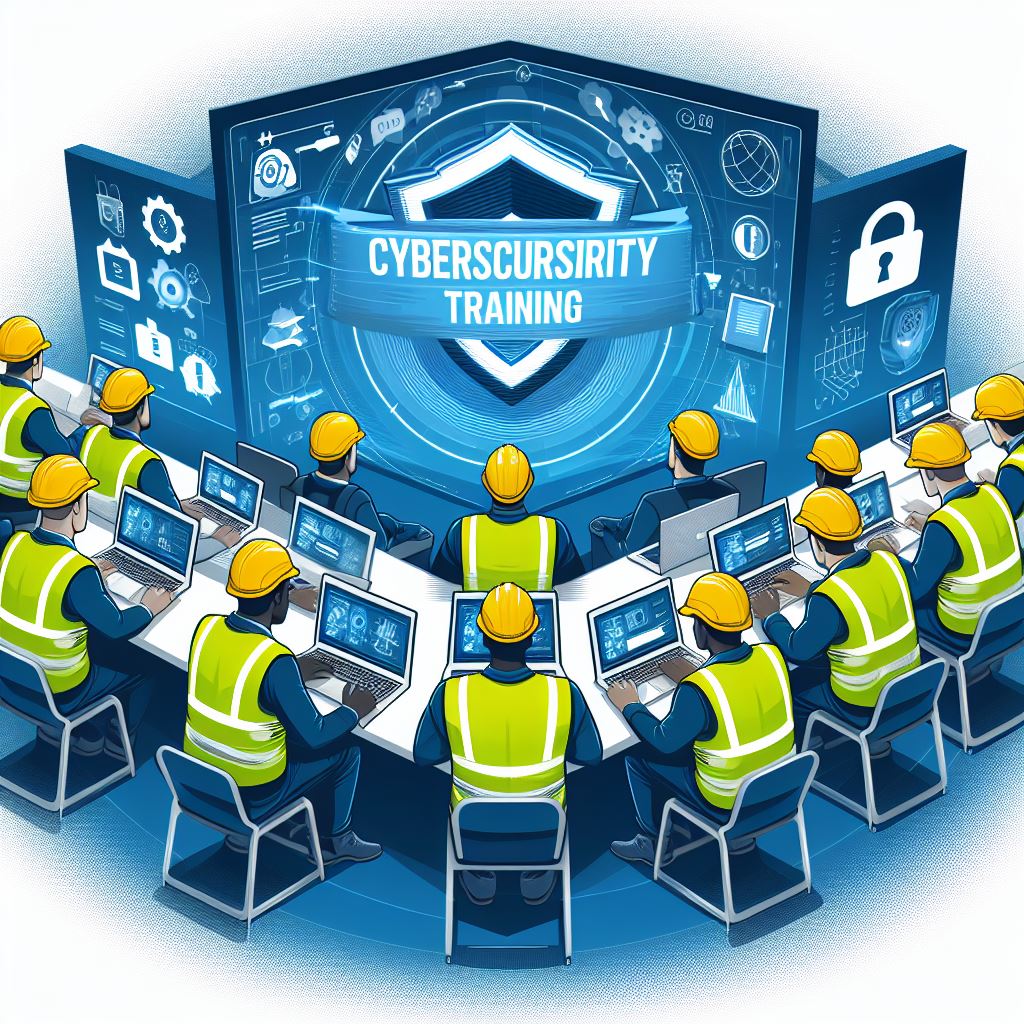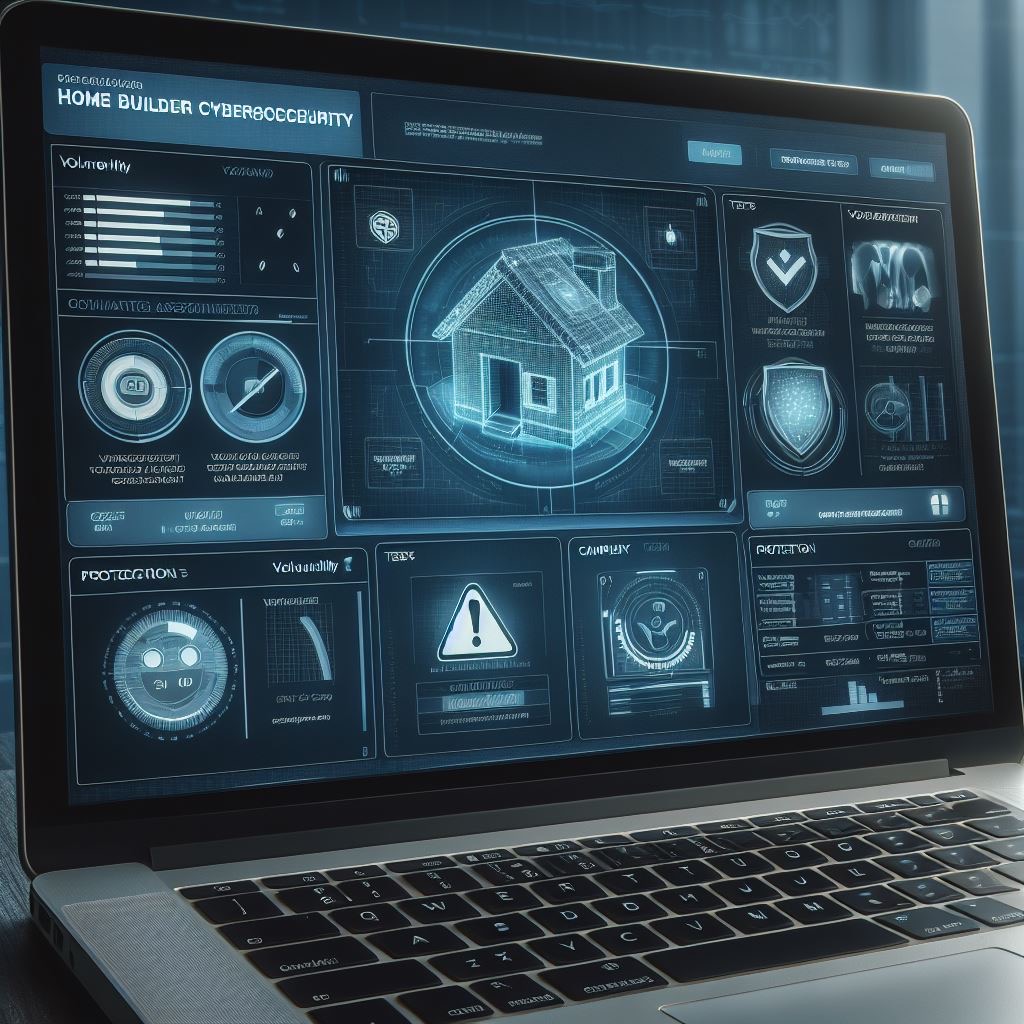
Defying All Odds - Day 23: Building a Cybersecurity Culture in the Construction Industry
“You have to be prepared to fight and finish your own battles.” - Jim Harbaugh
Introduction:
A strong cybersecurity culture is vital for construction companies to mitigate cyber risks effectively. In this article, we will explore strategies for building a cybersecurity culture in the construction industry. From executive leadership commitment to employee awareness programs, these strategies will help foster a security-conscious mindset among employees and create a collective responsibility for cybersecurity. By establishing a cybersecurity culture, construction companies can strengthen their defenses against cyber threats and promote a secure work environment.
In our featured story, we talked about how ZATIS helped a construction company defy the odds and win in the battle against hackers and cybercriminals. Join us today as we discuss the strategies that build a strong cybersecurity culture in a construction company.

The construction industry is like the epic saga of a football team on a winning streak. They're both about building something valuable, be it a skyscraper or a trophy-winning squad. But the success of both relies on a strong defense - not just against physical threats, but cyber threats as well. With evolving technology, the construction industry is increasingly exposed to cyber risks, making a strong cybersecurity culture as crucial as a well-drilled defense in football. Let's look at some strategies for building this culture within the construction industry.
1. Executive Leadership Commitment

Just as a team's success starts with the commitment of the coach and management, building a cybersecurity culture begins at the top. Executives need to be actively involved, setting a clear vision for cybersecurity and allocating resources towards its implementation.
2. Regular Training and Awareness Programs

A team is only as good as its players, and employees are the first line of defense against cyber threats. Regular training on cybersecurity best practices and potential threats helps foster a security-conscious mindset among employees.
3. A Collective Responsibility

Share the responsibility of cybersecurity with all employees. Just as every player on a football team has a defensive role, every employee should play a part in cybersecurity. Promote the idea that security is not just the IT department's job but everyone's duty.
4. Encouraging Open Communication

Encourage employees to report any suspicious activities without fear of blame. In football terms, if a player sees a gap in the defense, they should feel comfortable pointing it out. The same applies to cybersecurity.
5. Implement a Cybersecurity Policy

A clear, comprehensive cybersecurity policy is the playbook for your defense strategy. It should define the do's and don'ts for employees and provide guidelines for how to handle a cyber incident.
6. Rewarding Good Behavior

Just as players get recognition for good performances, employees should be rewarded for following cybersecurity procedures. This can help motivate employees to take cybersecurity seriously.
7. Regular Risk Assessments

Like a coach analyzing a team's performance after a game, regular risk assessments can help identify areas of vulnerability and highlight where improvements can be made.
8. Incident Response Plan

Having a plan in place for when a cyber incident occurs is like knowing what to do when the opposition scores a goal. Quick and effective response can minimize damage.
9. Continuous Improvement

Cyber threats evolve constantly, and so should your cybersecurity culture. Adopt a mindset of continuous improvement, regularly updating training programs and policies to reflect the changing threat landscape. In the game of cybersecurity, every player counts, every move matters, and every second is crucial. By building a strong cybersecurity culture, construction companies can ensure they are ready to face any cyber threat that comes their way, just like a well-drilled football team facing an opponent. So, put on your game face, step onto the field, and let's build a cybersecurity culture that defies all odds.

The Importance of Proactive Cybersecurity Measures
To mitigate the risks associated with cyber threats, construction companies must adopt a proactive approach to cybersecurity. Implementing robust cybersecurity measures can help protect the company's assets, maintain client trust, and ensure the smooth operation of projects. Here are some key steps that construction companies can take:
1. Employee Education and Training:

Employees are often the first line of defense against cyber threats. Providing comprehensive training on cybersecurity best practices, such as identifying phishing emails and using strong passwords, can significantly reduce the risk of successful attacks.
2. Regular Security Assessments:

Conducting regular security assessments, including vulnerability scanning and penetration testing, can identify potential weaknesses in the company's systems and infrastructure. This allows for timely remediation before cybercriminals can exploit these vulnerabilities.
3. Secure Network Infrastructure:

Implementing robust firewalls, intrusion detection systems, and encryption protocols can help safeguard the company's network infrastructure from unauthorized access and data breaches.
4. Access Control and Authentication:

Implementing strong access control measures, such as multi-factor authentication and role-based access controls, can ensure that only authorized individuals have access to sensitive information.
5. Data Backup and Recovery:

Regularly backing up critical data and implementing a robust disaster recovery plan can help minimize the impact of a cyber-attack and facilitate the restoration of operations.
Conclusion:
In an increasingly digitized world, the construction industry must recognize the importance of cybersecurity and take proactive measures to protect its valuable assets. Neglecting cybersecurity can have severe consequences, including financial losses, reputational damage, project delays, legal and regulatory compliance issues, and loss of intellectual property. By prioritizing cybersecurity and implementing robust measures, construction companies can safeguard their operations, maintain client trust, and ensure their long-term success in an evolving digital landscape.
Want to know if your construction company is at major risk of getting hacked? Click here for a FREE 15-Minute Cyber Consult.

5 Reasons Your Construction Company Needs a Cybersecurity Risk Assessment. 👊
It is important for construction companies to conduct a cybersecurity risk assessment for several reasons:
1. Protection of sensitive data:
Construction companies handle a vast amount of sensitive data, including financial information, project details, client information, and employee records. Conducting a cybersecurity risk assessment helps identify potential vulnerabilities and ensures appropriate safeguards are in place to protect this data from unauthorized access, data breaches, or theft.
2. Mitigating financial losses:
Cyberattacks can result in significant financial losses for construction companies. These losses can stem from data breaches, ransomware attacks, or the disruption of critical systems. By conducting a cybersecurity risk assessment, companies can identify potential weaknesses in their IT infrastructure and take proactive measures to mitigate the financial risks associated with cyber threats.
3. Maintaining business continuity:
A successful cyber-attack can disrupt construction projects, delay timelines, and impact the overall business operations. By conducting a risk assessment, construction companies can identify potential vulnerabilities and implement robust cybersecurity measures to ensure business continuity. This includes having backup systems, disaster recovery plans, and incident response protocols in place.
4. Protecting reputation and client trust:
Construction companies rely on their reputation and client trust to secure new projects and contracts. A cybersecurity breach can undermine trust, damage the company's reputation, and lead to the loss of clients. By conducting a risk assessment and implementing appropriate cybersecurity measures, construction companies can demonstrate their commitment to protecting client data and maintaining a secure operating environment.
5. Compliance with regulations:
Construction companies may be subject to industry-specific regulations and legal requirements regarding data protection and cybersecurity. Conducting a risk assessment helps identify any gaps in compliance and ensures that the company meets the necessary regulatory obligations.
Overall, conducting a cybersecurity risk assessment allows construction companies to proactively identify and address potential vulnerabilities, protect sensitive data, mitigate financial losses, maintain business continuity, protect their reputation, and comply with relevant regulations.
Other resources to help you get started with Cybersecurity
Start your own Cybersecurity initiative:
Here is a quick checklist to get you started with your Cybersecurity initiative. Remember imperfect action beats inaction, get started and keep pushing for progress and awareness with your people.
Update your software
Secure your files
Require passwords
Encrypt devices
Use multi-factor authentication
Protect your wireless network
Make "SMART SECURITY" your business as usual
Require strong passwords
Train all staff
Have a plan
